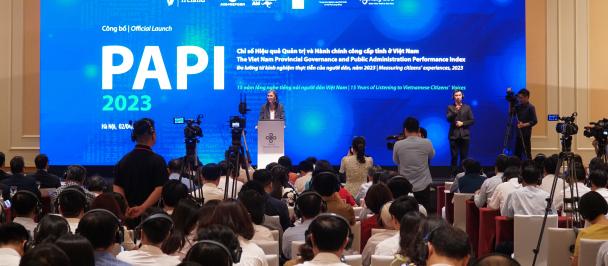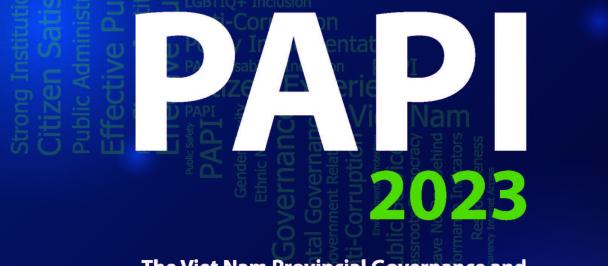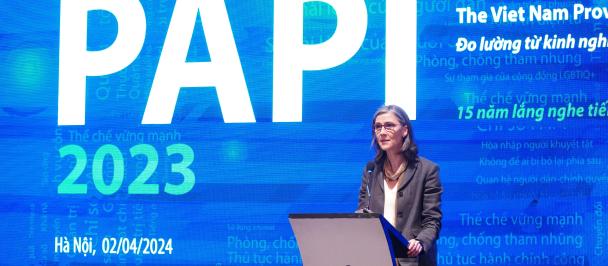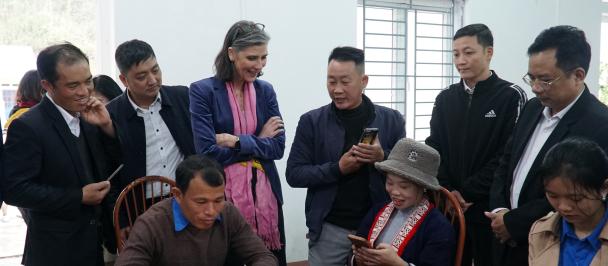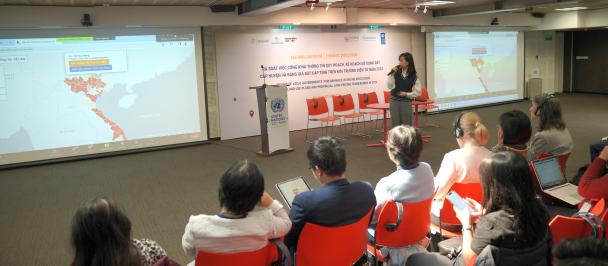Consultation Workshop: Supervision Mechanism to Ensure Compliance of Integrity by Judicial Professionals - International Experience and Recommendations for Viet Nam
November 22, 2022
Ms Ramla Khalidi, Resident Representative, UNDP Viet Nam
Opening Remarks
Excellency, Mr Nguyen Thanh Hai, Vice Chairperson of Central Party Committee for Internal Affairs
Excellency, Mr. Giorgio Aliberti, Ambassador of the European Union Delegation to Viet Nam
Representatives from the Supreme People’s Court, the Supreme People’s Procuracy, Ministry of Justice, National Assembly Office, Viet Nam Bar Federation, Viet Nam Lawyer Association, Viet Nam Fatherland Front, Law Universities and Judicial Academy.
Distinguished guests,
Good morning
Dear colleagues,
Viet Nam aspires to become an upper-middle-income country by 2030 and a high-income one by 2045. Upholding the rule of law and ensuring the reliability of the judiciary system, will be as important as having good economic outcomes to enable this development transition.
The centrality of a strong judicial sector lies in its essential contribution to fostering economic stability and growth, and enabling disputes to be resolved within a structured and orderly framework. In the judiciary, integrity is more than a virtue; it is a necessity.
Under the framework of the 2030 Agenda for Sustainable Development, judicial authorities around the world are called on to deliver justice for all and especially the most vulnerable and those left behind. This can be accelerated through initiatives that foster transparency, promote judicial integrity, and increase public trust without impeding the independence of the judiciary.
Judicial integrity is also at the core of various UN resolutions, decisions and instruments underlining the importance of establishing and strengthening effective, independent and objective judicial systems. The Bangalore Principles of Judicial Conduct, endorsed by the United Nations Economic and Social Council in its resolution 2006/23 highlights the core values of independence, impartiality, personal integrity, propriety, equality, competence and diligence.
The United Nations Convention against Corruption defines judicial integrity as a holistic concept that refers to the ability of the judicial system or an individual member of the judiciary to resist corruption. As stated in article 11 of the UN Convention Against Corruption, that Viet Nam became a signatory to in 2009, “Each State Party shall, in accordance with the fundamental principles of its legal system, and without prejudice to judicial independence, take measures to strengthen integrity and to prevent opportunities for corruption among members of the judiciary. Such measures may include rules with respect to the conduct of members of the judiciary”.
In recent years, Viet Nam has made good progress in judiciary reform toward promoting these values. The Politburo’s resolution 49 on Judicial reform strategy till 2020 and Conclusion 84 by the Politburo that reviewed 15 years of implementation of that Resolution emphasized development of a strong contingent of judicial and support staff, especially officials holding judicial posts, by enhancing their legal responsibility and authority, as well as by introducing higher specialized standards for each category of staff.
Laws and policies on anti-corruption and promotion of judicial integrity as well as supervision mechanisms of judicial integrity are well established. The development of Codes of conducts/ethics for Judges (2018), prosecutors (2017) and lawyers (2019) are clear examples of the progress made until now.
However, the gaps remain in the implementation and enforcement of these instruments. Today, we will hear some of the recommendations made by the research team, including the establishment of a National Judicial Council, the review of relevant laws, such as the law of lawyers, the need of increased public access to information and enhanced roles of media in anti-corruption discourse, especially in the judicial sector.
Today’s workshop is an important opportunity to receive your valuable feedback on the report which provides an overview of the supervision mechanisms of Australia, Singapore and Denmark, the current situation of the supervision mechanism in Viet Nam, and the recommendations on the way forward.
As Mr Hai mentioned this morning, this discussion is very timely as the Communist Party of Viet Nam recently adopted the Resolution on Continuation of developing and perfecting the socialist rule of law state, and thus the importance of accelerating the implementation of judicial reforms toward the rule of law and access to justice which will be in line with Viet Nam’s development aspirations.
With strategic support from the EU, UNDP is proud to support Viet Nam’s efforts to continue enhancing judicial integrity and the rule of law according to international standards.
Over the last four years, through the EUJULE, nearly 600 Vietnamese judges have received trainings on the core values of professional ethics and have been equiped with skills to comply with the ethical principles of judicial conduct as required by the Vietnamese laws and international standards. Results of our close co-operation with the judicial sector are encouraging.
In closing, I would like to take this opportunity to thank our partners, the Central Party Committee of Internal Affairs and the EU Delegation in Viet Nam for their trust and support to further promote the rule of law and access to justice especially for the most vulnerable, thereby accelerating the realization of Sustainable Development Goal 16 on peace, justice, and strong institutions.
Thank you for listening. I look forward to an engaging and constructive discussion.

 Locations
Locations